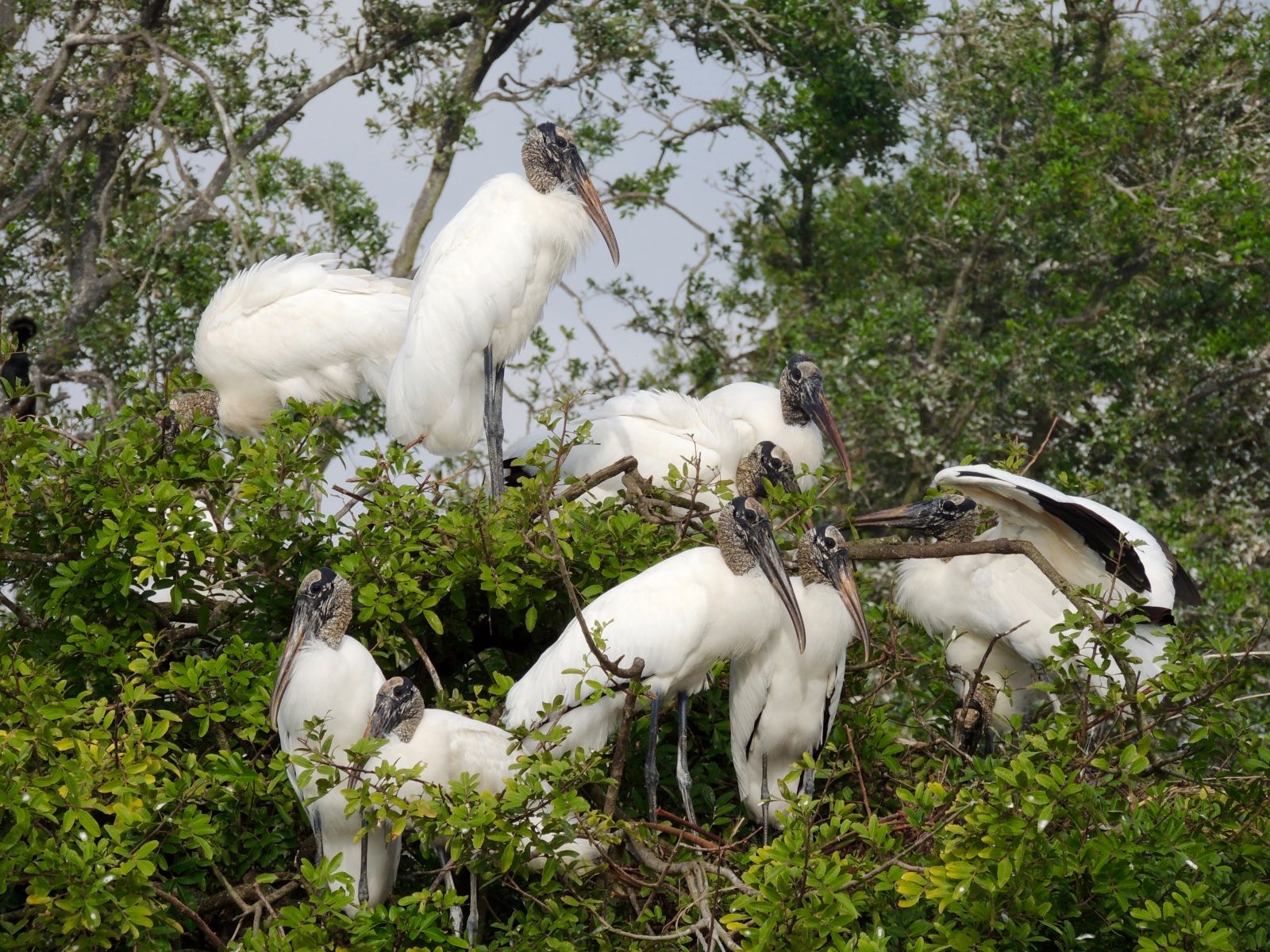4A Lab Seminar
Zachary Caple: The Wood Storks of Lake Somerset: Multispecies Ethnography of the Holocene/Anthropocene Boundary Event

Wood Storks, Lake Somerset. Photo Credit: Zachary Caple
What if the earth is not “in” the Anthropocene but in the midst of the Holocene/Anthropocene transition? In this talk, Zachary Caple argues for a new conceptualization of the planetary now focused on spatiotemporally patchy processes of Holocene erasure and Anthropocene emergence. This transition, he argues, must be understood at many scales, especially at the scale of landscape. How can environmental scholars in the humanities and natural sciences detect the Holocene/Anthropocene boundary event in local landscape assemblages? Presenting material from his extensive fieldwork in the Bone Valley phosphate mining district in Central Florida, Caple offers a tour of Lake Somerset, an abandoned phosphate pit, where endangered wood storks have established a rookery. These storks exemplify what he calls a Holocene fragment – a long-established ecological form not yet erased in the onrushing violence of the Anthropocene. He argues that Lake Somerset, and the Holocene/Anthropocene transition generally, become legible by attending to processes of creative niche destruction: capital-generating disturbances that irreversibly alter the biophysical structure of ecological space. Splicing together tools of natural history observation, ethnography, and multispecies history, he argues, we can come to know the Holocene/Anthropocene transition in its concrete, geographically uneven specificities – a key practice if we are to grasp shifting patterns of livability in this time of radical change.
Zachary Caple is a Postdoctoral Fellow in the interdisciplinary program 4A Laboratory: Art Histories, Archaeologies, Anthropologies, Aesthetics (September–December 2022). Before, he was a Postdoctoral Fellow with the Anthropogenic Heathlands group (ANTHEA) at Aarhus University, Denmark. His research examines the multispecies landscape changes of the Holocene/Anthropocene planetary transition. Zachary received his Doctorate in Anthropology from the University of California Santa Cruz in 2017, and was a research scientist at the University of South Florida from 2017–2021. His dissertation, Holocene in Fragments: A Critical Landscape Ecology of Phosphorus in Florida, examines the phosphate fertilizer industry – and the human-altered phosphorus cycle more broadly – as an agent of environmental violence and capitalist growth. His work on chemical fertilizers has been featured in Technosphere, a collaboration of the Haus der Kulturen der Welt; Connectedness: An Incomplete Encyclopedia of the Anthropocene; and, most recently, the online publication Feral Atlas.
28 November 2022
The event takes place online. Please register to this seminar session at: 4a_lab@khi.fi.it
Notice
This event will be documented photographically and/or recorded on video. Please let us know if you do not agree with the Kunsthistorisches Institut in Florenz using images in which you might be recognizable for event documentation and public relation purposes (e.g. social media).


